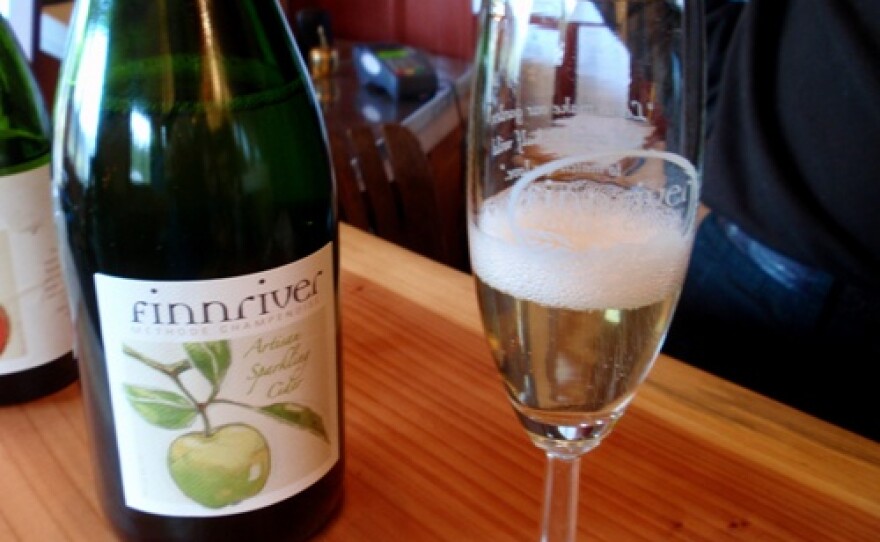Forget Wall Street. One way some well-off Northwesterners avoided steep losses in the stock market in recent years was by making unusual alternative investments: in small farms and food businesses. These “angel investors” are organizing loose networks to match their money with cash-hungry local producers. Think of it as slow-food meets slow money.
http://stream.publicbroadcasting.net/production/mp3/kplu/local-kplu-940328.mp3
Farmers Crystie and Keith Kisler are smiling and popping corks, as they pour samples of their hard cider and fruit liquors. We’re in the tasting room of the new cidery on their small organic farm, Finnriver Farm.
But rewind to four years ago. The Kislers had hit a rough patch and needed to borrow money. Crystie remembers she didn’t even bother to apply at a bank:
“We didn’t have the income, or the assets or the confidence perhaps even to approach a bank at that time," says Kisler.
Enter a wealthy “techie” from the software business who they “barely” knew. Steve Moore retired in nearby Port Townsend.
“I started thinking about where else can I get some kind of reasonable rate of return where return can actually be defined more fully than just how much money did I make,” says Moore.
“This notion of an angel investor seemed just that to us. It seemed miraculous,” says Crystie.
The two parties were introduced by a mutual acquaintance. They sat down at the farmhouse’s kitchen table and negotiated the terms of a $205,000 private loan.
“This isn’t charity. I’m not giving them money. It’s not about a tax deduction, or whatever,” says Moore.
Lender Steve Moore charged no interest, but instead received a minority share of the new cidery business:
“I am actually getting return in full of what I originally put forward, plus a participation in the cidery, plus consumables as dividends, like cider and blueberries. I did pretty well.”
“And we love writing the check to folks whose names we know and whose faces we see on our farm,” responds Crystie Kisler.
Moore is one of the founding members of a group dubbed the Local Investing Opportunities Network or LION. He says the well-to-do members have various reasons for joining:
“They wanted out of Wall Street. They wanted to diversify. They just wanted to help strengthen the community fabric.”
Moore says the group is fielding lots of calls for how to copy their local investing clearinghouse model. The Port Townsend investors screen money requests together, but it’s up to each individual to decide to enter a transaction.
Retired pediatrician Kees Kolff also invested in the Kisler’s Finnriver Farm. In addition, he’s loaned money to and taken an equity stake in a local artisan cheese maker, the Port Townsend Creamery. Kolff says he gets some unusual dividends:
“Those of us who have invested get 7 percent return per year, in cheese! We get a cheese card. I can show you my cheese card, right here...”
For any financial advisors listening out there, Kolff says his local farm and small business loans total about 10 percent of his retirement portfolio. Here’s why many financial planners would be concerned.
Kolff says most of the loans are unsecured, meaning there’s no collateral. The equity investments are long term and illiquid, meaning you can’t pull the money out quickly. They’re also no regulatory oversight because these are all private transactions.
Mark Bowman is a senior loan officer with the commercial lender Enterprise Cascadia. He says the private loans involve more risk than a traditional bank would take on:
“Having local investors like the LION group is very complementary to the lending that we do. It even fills gaps of higher risk lending that we can’t.”
Nationally, there’s a new non-profit to promote investing in local food and farms. You’ve heard of Slow Food? This is called Slow Money. The group has a Northwest regional chapter which held its first investor pitch session last month.
In Bellingham, the Community Food Coop has started a farm investing fund.








